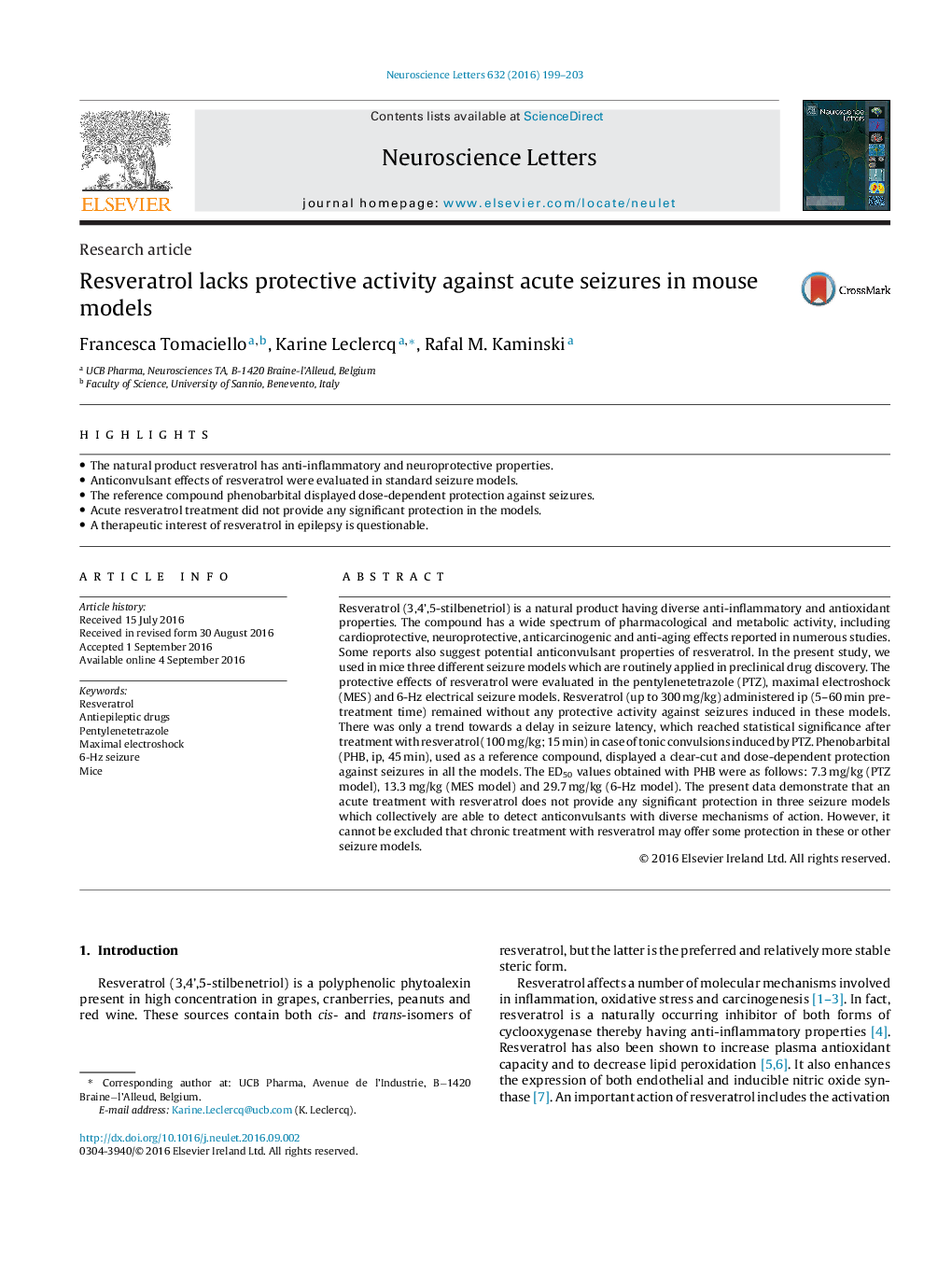| Article ID | Journal | Published Year | Pages | File Type |
|---|---|---|---|---|
| 6278974 | Neuroscience Letters | 2016 | 5 Pages |
Abstract
Resveratrol (3,4',5-stilbenetriol) is a natural product having diverse anti-inflammatory and antioxidant properties. The compound has a wide spectrum of pharmacological and metabolic activity, including cardioprotective, neuroprotective, anticarcinogenic and anti-aging effects reported in numerous studies. Some reports also suggest potential anticonvulsant properties of resveratrol. In the present study, we used in mice three different seizure models which are routinely applied in preclinical drug discovery. The protective effects of resveratrol were evaluated in the pentylenetetrazole (PTZ), maximal electroshock (MES) and 6-Hz electrical seizure models. Resveratrol (up to 300Â mg/kg) administered ip (5-60Â min pre-treatment time) remained without any protective activity against seizures induced in these models. There was only a trend towards a delay in seizure latency, which reached statistical significance after treatment with resveratrol (100Â mg/kg; 15Â min) in case of tonic convulsions induced by PTZ. Phenobarbital (PHB, ip, 45Â min), used as a reference compound, displayed a clear-cut and dose-dependent protection against seizures in all the models. The ED50 values obtained with PHB were as follows: 7.3Â mg/kg (PTZ model), 13.3Â mg/kg (MES model) and 29.7Â mg/kg (6-Hz model). The present data demonstrate that an acute treatment with resveratrol does not provide any significant protection in three seizure models which collectively are able to detect anticonvulsants with diverse mechanisms of action. However, it cannot be excluded that chronic treatment with resveratrol may offer some protection in these or other seizure models.
Related Topics
Life Sciences
Neuroscience
Neuroscience (General)
Authors
Francesca Tomaciello, Karine Leclercq, Rafal M. Kaminski,
